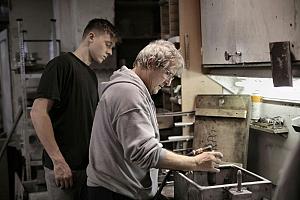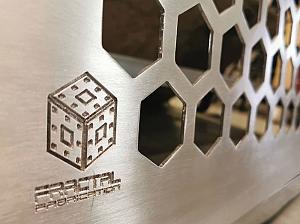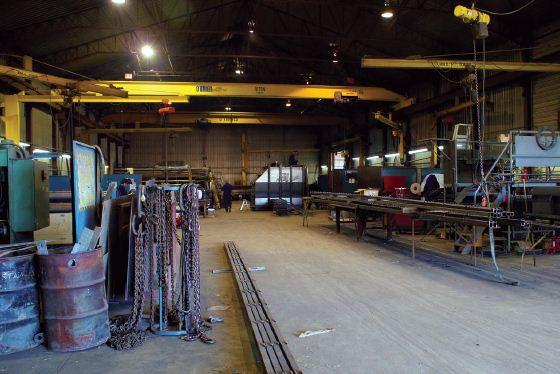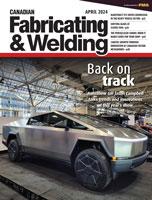- FMA
- The Fabricator
- FABTECH
- Canadian Metalworking
Business Profile: H.M. Métal
This Sainte-Sophie-de-Lévrard,QC-based shop is thriving in the country.
- By Nestor Gula
- September 3, 2015
- Article
- Fabricating
There are many people who live in the city and in moments of desperation or frustration ponder a move to the country for a simpler life. Few ever act on this impulse.
Michel Neault, the president of H.M. Métal in Sainte-Sophie-de-Lévrard in Québec is someone who did. “I didn’t like the big cities—Toronto or Montreal,” he says. “I was always looking to come back to the country.”
After finishing metallurgy in college in Trois-Rivières and specializing in welding, Neault noticed a job posting tacked onto a bulletin board at the college. “They were looking for a guy from Quebec to work for Lincoln Electric,” he says. “I applied and got the job. There was training and I stayed there for a year…It was supposed to be for six months, but I stayed a year in Toronto. In 1977 I came to Montreal. I left Lincoln in 1980, I bought the farm, and I worked on the farm until about 1988.”
The farm was his father’s, and he spent a few years farming. “I told my wife that we are going back to Sainte-Sophie and we’ll see what happens,” he says.
The family moved to the farm, but farming was not the only thing on Michel’s mind. “Metalworking started as a side project. In the back of my mind, I always wanted to have a welding shop,” he says.
“We started the company very slowly. My wife and I, we had one employee who worked on the farm and with the company.”
The company’s name, H.M. Métal incorporates both his and his wife’s, Hélène, names in the title. She is still listed as the vice president.
The company was incorporated in 1990. “We worked on both the company and the farm,” says Neault. Then in 1994, they sold almost everything, keeping the land on which the company’s 30,000 square foot facility is located, and they started to work full time on the welding business.
On first glance this area is very agricultural—the land is rather flat and is occupied by farms and forests. “Twenty minutes from here there is a big industrial park,” explains Gabriel Neault, Michel’s son who is in charge of business development for the company. “There is an aluminum plant there, Alcoa, and a lot of other big industries. There is a port. There used to be a nuclear plant as well. It was closed a few years ago.”
The Bécancour Industrial Park is a hub of activity with not just aluminum processing but magnesium and other refractory metals processed there as well as petroleum products, and there are many machine shops and other factories as well.
“It does not seem very industrial, but there is a lot of industry around here,” he says. Besides the favourable industrial opportunities, locating his business where it is made financial sense. “It was a cheap way to start a business here,” says Michael. “We were looking to buy something in the industrial park but it was too expensive.”
Many of the clients H.M. Métal services are based in the industrial park. “Engineering firms, big companies like Alcoa,” supply the main body of work according to Michel. “We used to do a lot of work for the mining industry three years ago, but it has been rather slow as of late.” Being located in an agricultural area it would be presumptive to suppose that a lot of work is done to serve this industry.
“When we began there were still a lot of farmers around and we took care of them as well. We still do that but that is now about one per cent of our business.” The work is not localized. Both Michel and Gabriel extol the fact that they have done work for plants in British Columbia, Alberta and the United States. “If we only stay in the local area we will not be in business,” said Michel. “We have to go find customers. We are a custom manufacturing shop. It might be small machine parts that we fabricate for a specific company or it will be large equipment for the mining industry.”
Upon starting his company, Michel used the contacts he made working for Lincoln Electric to get work. “When I quit Lincoln, I had a lot of contacts. I was the tech representative on the road, and I always had great contacts,” he says. “So when my wife and I decided to start the business, I went to the industrial park here and met people. That’s how it started. The first job I got, I sold it, I made the job, I delivered that job and after that I did not have any other jobs, so I had to go back and do sales.”
The company has built its reputation on quality work and good service, something both Michel and Gabriel says is important to maintain. A large help with landing new business is that they are ISO 9001 registered and have recently been certified by the ASME for pressure vessels.
“These certifications open the doors for us to new clients,” says Gabriel. “Once you have the certification—it tells the clients that you can fabricate to their requirements and specification.”
Getting new clients is a slow process, but they are bullish with their certification and their 25 years of business experience and stellar reputation.
“We participated in a petroleum show in Alberta, and we went to a meeting with potential customers in Houston,” says Gabriel. “There is a lot of competition. With the low dollar it is better for us.”
“When it was [on par] there was no chance to work for the U.S., but now it is very good. I hope it stays this way,” echoes his dad. “If you are taking a vacation it is not that good, but for business it is good.
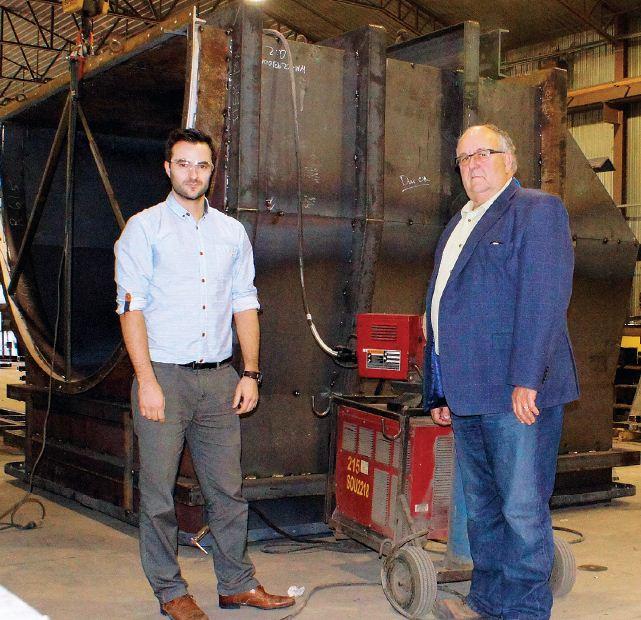
Gabriel and Michel with their first welder as a worker puts the finishing touches to a custom assembly.
The American customers are saving 20 per cent. Shipping is not a problem. If you have a three-month project—then the two to three days of shipping is not a problem.”
Since the shop is a custom shop, the company prefers to use manual equipment. Michel points out one welding machine that was the first purchased when he started the company. Other welding power sources are brand new and feature the latest technologies. “We buy one or two welding machines a year as we need them,” says Michel.
However, H.M. Métal does have some CNCs to expand their portfolio. “We have a CNC lathe and a machining centre. We don’t make 10,000 pieces of this or 5,000 pieces of that—it is all custom, so we don’t need to be super on the technological front.” He notes that implementing a robotic or automated system would not make sense when nearly every piece they churn out is different.
The one thing Michel prides himself on is the fact that they do almost everything in-house, very rarely subcontracting out processes. However, the only thing that H.M. Métal occasionally sends out is laser cutting to a company half-an-hour from their location. “We do have a CNC plasma cutter here,” explains Michel. “Older machines work well for us. You need the right people. Minutes are not that important because we don’t do [large] volume work. It is more about the quality of our workers that will make us a better shop than the technology itself.”
Finding the right people is a bit of a tricky issue in a sparsely populated agricultural area. There are about 50 people employed at H.M. Métal right now, and most workers live within about a half-an-hour’s drive. There are no traffic issues here, it is just distance.
To find new employees, the company works with local schools. “If some teachers think they have good students they will recommend them to us,” said Michel. “If you get somebody good you keep them with good work conditions and a good salary.”
Even though they have a fairly young workforce—mostly under 35 years old—many of their workers have been with the company many years. “The oldest worker here is around 42 but has been working here since he was 17 or 18,” said Gabriel. “Another worker has been here for 22 years.”
The strength of H.M. Métal also lies in the fact that is a purely family run business. All three of Helen’s and Michel’s sons work for the family firm. Gabriel is 28 and studied business administration and works here as a business development officer. Philippe is 32 and is a welding engineer and Jean Frederique is 34 and a mechanical technician by training and does drafting for the company. Gabriel sees the future as very bright. “We see that the economy is going to be better. My brothers all work here—we all have different tasks, different backgrounds and we work well together.”
About the Author
subscribe now


Keep up to date with the latest news, events, and technology for all things metal from our pair of monthly magazines written specifically for Canadian manufacturers!
Start Your Free Subscription- Trending Articles
BlueForge Alliance partners with Nuts, Bolts & Thingamajigs to develop Submarine Manufacturing Camps

Portable system becomes hot tech in heat treatment
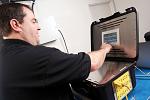
Orbital tube welding webinar to be held April 23
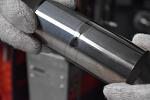
Cidan Machinery Metal Expo 2024 to be held in Georgia May 1-2
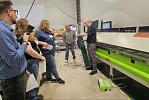
Corrosion-inhibiting coating can be peeled off after use
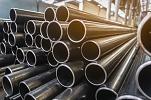
- Industry Events
MME Winnipeg
- April 30, 2024
- Winnipeg, ON Canada
CTMA Economic Uncertainty: Helping You Navigate Windsor Seminar
- April 30, 2024
- Windsor, ON Canada
CTMA Economic Uncertainty: Helping You Navigate Kitchener Seminar
- May 2, 2024
- Kitchener, ON Canada
Automate 2024
- May 6 - 9, 2024
- Chicago, IL
ANCA Open House
- May 7 - 8, 2024
- Wixom, MI





